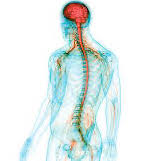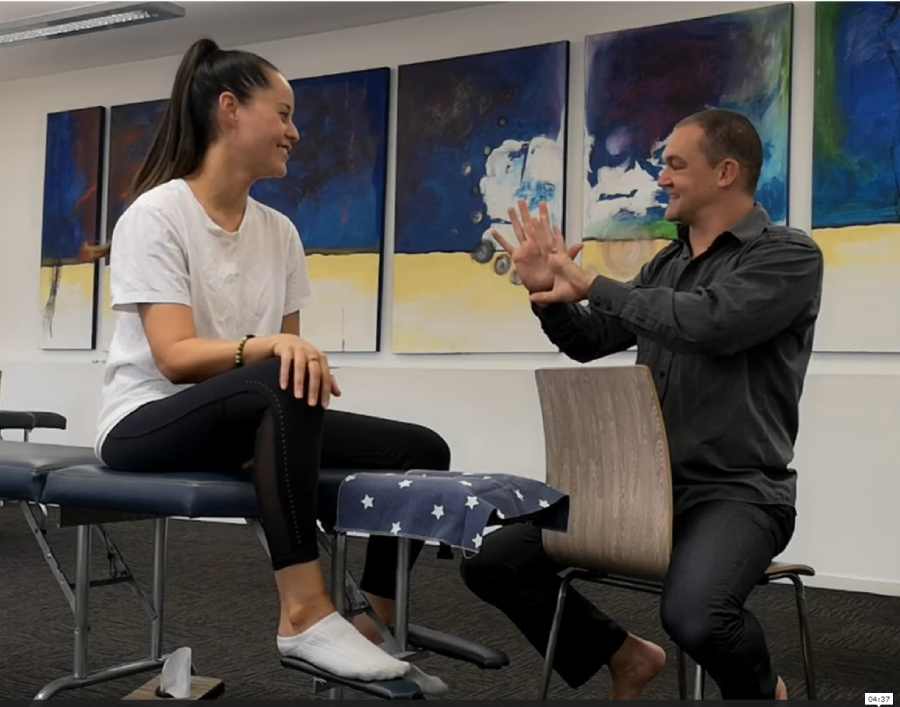What exactly is anxiety?
ANXIETY is the accumulation of stress in one's body and mind that causes the inappropriate firing of the ‘fight or flight’ response.
This fight or flight response is the built-in autonomic Nervous system response in the body to keep us safe from danger.
We humans have these built-in survival reflexes - which is wonderful to keep us safe from danger, but if this is being fired off by inappropriate situations, simple thoughts or if it's constantly STUCK ON, it can cause a very uncomfortable experience; and it’s bad for our health by lowering our immune system and quality of life.
What is the Nervous System?
The Nervous System can be thought of as the master control system of the body. This system communicates with all systems of the body, and helps all systems communicate with each other through a highly complex system of nerves.
It is through this system and how it adapts to the environment that we can make the biggest influence on helping people with anxiety.
First, let me explain some common approaches that most people try at first; often with temporary results (if any).
A common approach to try and deal with anxiety is breath work. Breathing can only manage anxiety, as it does not address the accumulation of stress bound in the Nervous System.
Doing breathing exercises is good for your Respiratory System.
Doing physical exercise is healthy for your Cardiovascular System.
Having a massage for your Musculoskeletal System will reduce tension in the musculoskeletal temporarily.
Changing diet for a healthier Digestive System will reduce the stress in your GI (gastrointestinal system) and can have a big impact on your Nervous System to a degree, but if your Nervous System is already in a state of stress, it will have less of an impact.
We think of the Nervous System as the most important system in the body and mind, as it is the backbone of the human body - because it controls and regulates all other systems of the body!
Link Between the Nervous System and Anxiety
Anxiety is often (almost always) caused by too much stress in the Nervous System. If you do not actually address the bound tension in the Nervous System, the anxiety will eventually come back.
If you address the Nervous System by releasing the bound tension that has accumulated over your life, this will actually affect all other systems of the body - which is why, with Network Spinal Analysis care, symptoms of anxiety disappear when you get to intermediate or advanced level of care.
As tension is released from the Nervous System, the Respiratory System health increases and it becomes naturally easier to breathe.
Heart rate naturally returns to a healthy pace.
Digestive problems, such as IBS, are reduced or completely gone.
Muscles become naturally more relaxed.
Energy levels increase and sleep quality improves.

Essentially, having bound tension in your body from life's stresses and traumas causes your Nervous System to operate out of a defensive physiology (survival mode). This will cause anxiety and many other challenges. Only by addressing it at the level of the Nervous System will help you resolve it.
In this blog, you will learn:
- The 7 main physical and mental symptoms of anxiety
- What anxiety causes and why
- How serious is anxiety
- How to calm anxiety
The 7 main physical and mental symptoms of anxiety
Symptoms can be categorised in 2 ways; Physical or mental
Physical symptoms:
- Accelerated heart rate or pounding heart
- Sweating
- Tight chest
- Trembling or shaking
- Shortness of breath
- Nausea
- Headaches
Mental symptoms:
- Worry
- Difficulty concentrating
- Restlessness
- Perfectionism
- Self-doubt
- Insecurity
- Fear

What anxiety causes and why
Anxiety causes so many symptoms, but the main problems I see in my clinic that someone really wants help with are the bigger things that the anxiety affects/causes.
The anxiety can ruin a relationship, stop someone from being the parent they want to be, stop the person from going after that new job or job promotion. It can ruin friendships, make it hard to make new ones, and almost always, it lowers their quality of life. Anxiety, especially as it gets worse, will lower a person's day to day happiness and quality of life.
We have separate blogs (coming soon) on each of these topics if you want to read a little more.
Depression and anxiety
Relationship issues
Anxiety and parenting
Anxiety and friends - social anxiety
Anxiety and quality of life
How serious is anxiety?
Anxiety, in most cases, is treatable and can be fully overcome with the right strategies. So, in most cases, it is not serious. In saying that, it can put people in some pretty dark places and the level that it can destroy someone's quality of life can be very serious.
If someone is suffering from anxiety and it is really taking over their life, yes, it will become serious - but the key is putting in the effort to resolve it and finding people who can help. Start with addressing the Nervous system.
It does not need to be a huge problem, just start working on the solution.

There are times (although this is the minority of cases) where anxiety is actually caused by a disease or associated mental health challenge, in which case may not be treatable because it is the symptom of something bigger. What is going on here beneath the anxiety can be a serious condition, however this is not the cause of most anxiety.
The best way to resolve something is to treat the underlying cause and then the symptoms will go away - so treating anxiety as a symptom will only be helpful to a degree. In this case, see a doctor and address the underlying cause.
How to calm anxiety:
There are many many ways to ‘calm anxiety’. Here are a few:
Behavioural therapy.
Deep breathing.
Exercise.
Journaling.
Meditation.
Reading.
Socialising
What does it mean to calm anxiety… and is this a worthwhile goal?
These management strategies, if they work, will ‘calm’ anxiety for different reasons. The journaling can help access the prefrontal cortex and disengage the primitive response; same with reading. Exercising and meditation will shift the physiology, but these don’t really ‘calm’ anxiety - they more help the person redirect their energy and in this change of state the person experiences life differently - but only for a small period of time.
This is mainly because it does not do anything for your Nervous system. If your body is stuck in a defensive, tense state or is stuck with the fight or flight switched ‘on’, reading, exercising, journaling, etc. won't solve the underlying accumulation of tension that is causing the anxiety.
So many people use these calming strategies but then have to keep doing them, and over time get stuck in trying to manage their anxiety and not actually addressing it.

A better question you could ask would be, rather than “what can I do to calm my anxiety temporarily”, “what can I do to overcome or cure it?”
To overcome anxiety, the root cause must be addressed - which is the Nervous system.
